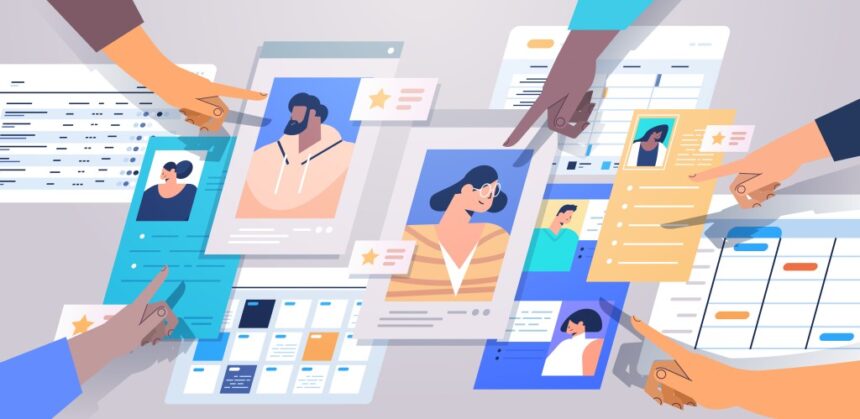The hiring landscape is rapidly evolving, driven by technological advancements, shifts in work culture, and changing candidate expectations. Staying ahead of these trends is crucial for companies looking to attract and retain top talent. Partnering with the leading recruitment agency of Pakistan can give you an edge in navigating these changes. In this blog, we’ll explore key emerging trends shaping the future of hiring that you simply can’t afford to overlook.
The Role of Technology in Hiring
1. Artificial Intelligence and Automation
Artificial Intelligence (AI) is transforming hiring processes by automating repetitive tasks, such as resume screening and initial candidate assessments. AI-powered tools can quickly analyze thousands of resumes, shortlisting the most relevant candidates based on predefined criteria, thus saving significant time for recruiters.
Key benefits of AI in hiring:
- Time-saving automation of routine tasks
- Enhanced decision-making through data-driven insights
- Improved candidate matching based on skills and experience
2. Virtual and Augmented Reality in Interviews
Virtual reality (VR) and augmented reality (AR) are changing the way interviews are conducted, especially for technical and creative roles. Candidates can now participate in simulated tasks during interviews, allowing employers to gauge their practical skills in real-time.
How VR and AR are enhancing hiring:
- Virtual work environments for skill assessment
- Enhanced engagement during the interview process
- Realistic simulations for evaluating candidates
3. Video Interviewing and Remote Hiring
With the rise of remote work, video interviews have become the new norm. This trend is not only cost-effective but also expands the candidate pool by eliminating geographical barriers. Video interviewing platforms now come with features like automated scheduling, recording, and even AI-driven analysis of candidate facial expressions and body language.
Advantages of video interviewing:
- Increased efficiency in the interview process
- Wider reach for recruiting talent across the globe
- Cost-effective compared to traditional in-person interviews
Evolving Candidate Expectations
1. Focus on Employer Branding
Today’s candidates are not just looking for jobs—they’re looking for a company with strong values and a positive work culture. Employer branding plays a critical role in attracting talent. Candidates are more likely to apply for jobs at companies that are seen as socially responsible and supportive of employee growth.
Strategies to enhance employer branding:
- Promote company values and culture on social media
- Encourage employee testimonials to share their experience
- Highlight social responsibility initiatives in recruitment campaigns
2. The Demand for Flexible Work Options
The post-pandemic world has seen a significant shift towards remote and flexible work. More candidates now prioritize work-life balance and are seeking jobs that offer flexible hours or remote work opportunities. Companies that fail to adapt to this trend risk losing out on top talent.
Why flexible work matters:
- Attracts a broader talent pool by accommodating different lifestyles
- Increases employee satisfaction and reduces turnover
- Boosts productivity through greater autonomy
3. Personalized Candidate Experience
Candidates now expect a more personalized experience throughout the recruitment process. Generic mass communication is no longer effective. Instead, companies are investing in recruitment marketing tools to create tailored experiences that keep candidates engaged.
Best practices for a personalized candidate experience:
- Tailored job recommendations based on candidate profiles
- Personalized communication during recruitment stages
- Customized onboarding programs for new hires
Data-Driven Recruiting
1. Predictive Analytics in Recruitment
Predictive analytics involves using data to forecast hiring trends, assess the likelihood of a candidate’s success, and optimize recruitment strategies. By analyzing historical data, recruiters can make more informed decisions about which candidates to target and how to approach them.
Benefits of predictive analytics:
- Improved candidate quality and better retention rates
- Data-driven insights for more effective hiring strategies
- Enhanced decision-making for long-term workforce planning
2. Real-Time Feedback and Continuous Improvement
Real-time feedback is becoming a crucial aspect of recruitment, allowing companies to constantly improve their hiring processes. Tools like candidate surveys, interview performance analytics, and recruiter feedback platforms provide actionable insights that can be used to refine recruitment efforts.
How real-time feedback helps:
- Identifies bottlenecks in the hiring process
- Improves candidate experience by addressing pain points
- Refines recruitment strategies based on data
Diversity and Inclusion
1. Inclusive Hiring Practices
Diversity and inclusion (D&I) are at the forefront of modern hiring strategies. Companies are prioritizing inclusive hiring by creating recruitment processes that reduce biases and encourage diversity in the workforce. Tools like blind recruitment (removing identifying information from resumes) are gaining popularity to help combat unconscious bias.
Key elements of inclusive hiring:
- Blind resume screening to avoid bias
- Diverse interview panels to ensure balanced assessments
- Inclusive job descriptions that appeal to a broad range of candidates
2. The Rise of Employee Resource Groups (ERGs)
Many companies are establishing Employee Resource Groups (ERGs) to foster a sense of belonging among diverse employees. These groups not only support underrepresented employees but also help in recruitment efforts by showcasing the company’s commitment to diversity.
The impact of ERGs:
- Increased employee engagement and retention
- Attracts diverse talent by showcasing an inclusive culture
- Promotes collaboration and cross-cultural understanding
Conclusion: Preparing for the Future of Hiring
The future of hiring is dynamic and rapidly changing. From the integration of advanced technologies like AI and VR to the growing demand for flexibility and personalized experiences, companies need to stay ahead of these trends to remain competitive. Diversity and inclusion, coupled with data-driven recruiting, will shape the future workforce, and employers who embrace these changes will be better positioned to attract top talent.
By keeping these emerging trends in mind and adjusting your hiring strategy accordingly, your organization can ensure it stays ahead of the curve in a fast-evolving recruitment landscape.






